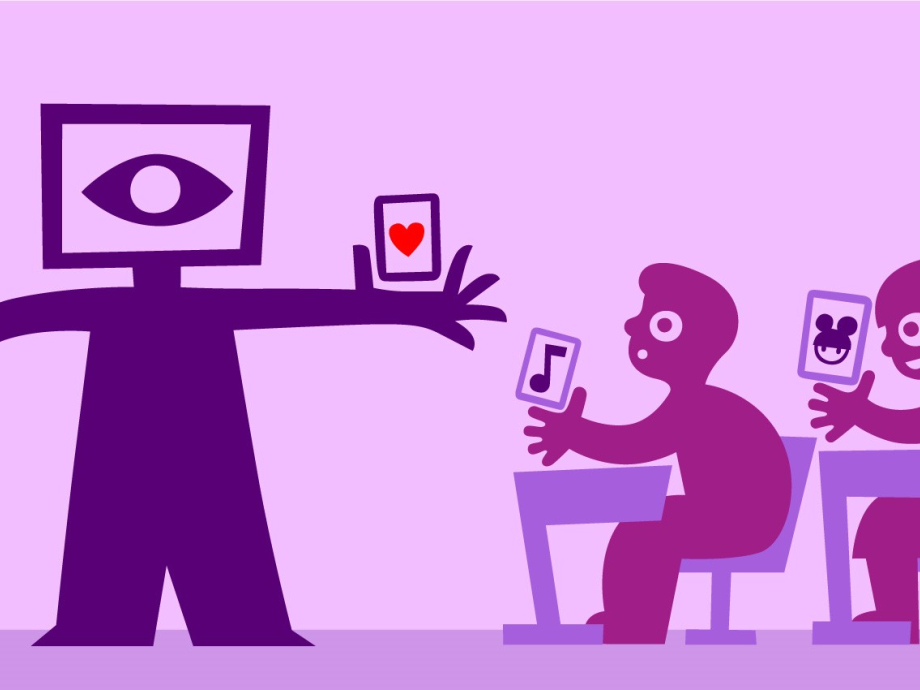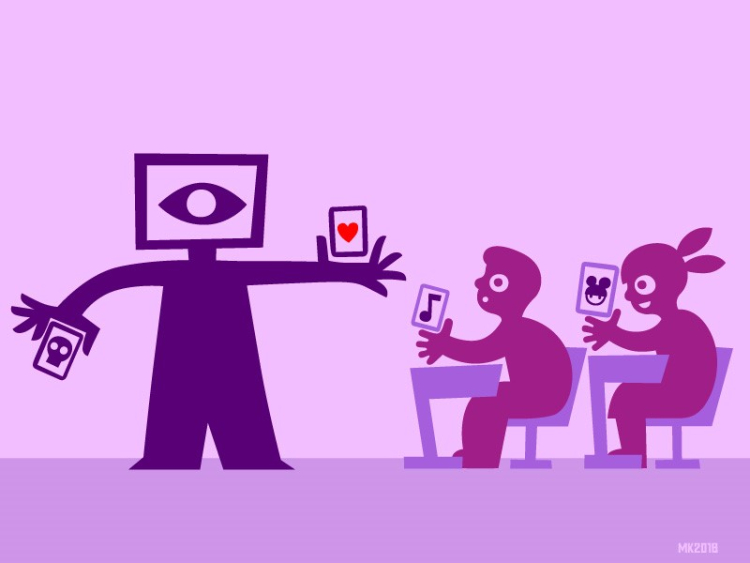Kennisnet: Schools need help in the battle for digital literacy
How do you make cyberspace a child-friendly environment? By helping schools focus more attention on digital literacy, write strategic consultant Remco Pijpers and Kennisnet Director Toine Maes.

By strategic consultant Remco Pijpers and Kennisnet Director Toine Maes
Reading time: 2-3 minutes
Be sure to read the other articles in the Decent Digitisation series
We all agree that we must go beyond teaching pupils ‘regular’ reading and writing. We also have to ensure that they become digitally literate and teach them to make safe and effective use of digital applications. In addition, we must prepare them for their digital future: throughout the rest of their education, in their working lives, as consumers, in social transactions, and in their dealings with government.
But what do we do about children who are at risk of missing the e-boat?

Concerns about growing inequality
We used to worry about the gap between rich children and poor. Now, there’s another worry: the gap between children who have mastered digital skills and those who have not. That gap will lead to more inequality in the job market, as noted by the Netherlands Institute for Social Research its report De toekomst tegemoet [Meeting the future].
Numerous reports emphasise how worried both pupils and teachers are about the potential losers of the information society. Kennisnet’s survey of Youth and Media 2017 (Monitor Jeugd en Media 2017) reveals that teenagers do not have the necessary digital skills, unless they are enrolled in pre-university programmes and have well-educated parents.
Be attentive to digital literacy at schools
Fortunately, things are set to change.
- Curriculum.nu, a broad coalition of stakeholders in education, is developing ‘building blocks for digital literacy’. The Ministry of Education, Culture and Science and the Netherlands Institute for Curriculum Development (SLO) will use these building blocks to update the learning objectives and attainment aims in Dutch primary and secondary education respectively.
- The new objectives and aims are expected to be introduced in 2021. Primary and secondary schools will be working with them as of that year and digital literacy will become an integral part of the school curriculum. Children will then have to satisfy minimum requirements in terms of their digital theoretical knowledge and practical skills. All children will receive instruction in digital literacy, even those who are less academically inclined or who cannot depend on assistance at home.
Being attentive to digital literacy: three recommendations
The introduction of a new curriculum will not solve every problem straight away. The new objectives and aims introduced in 2021 are sure to make a difference in the long run, but more is required. There are three objections, for which we have three recommendations.
- Objection 1: Lack of evidence
As yet, we do not know to what extent digital literacy lessons will produce practical results for all pupils. That’s because we don’t yet know precisely how children acquire digital skills. We aren’t really sure how to allow for differences in pupils’ digital skill sets.Recommendation 1: Encourage researchers to study pupil differences in digital skills and what method of instruction allows for those differences best.
- Objection 2: The new curriculum neglects the short term
The immediate, short-term problem is that children who are not encouraged to develop their digital skills at home risk falling behind even more. There is no way that schools can close that gap in the next few years. That’s why it’s important to invest now in extracurricular instruction. Fortunately this option is growing, but the relevant courses and programmes tend to emphasise programming skills, as an element of ‘computational thinking’. And it is precisely those skills that children who haven’t progressed beyond basic maths have trouble grasping.
Recommendation 2: Extend extracurricular instruction in basic digital skills and in digital information skills to include courses and programmes suitable for vulnerable children from low-literacy homes.
- Objection 3: Focusing on a qualification alone is not enough
What happens to children who are offered ‘equal opportunities’ but ‘ignore’ them? School managers and teachers at schools for children with severe learning difficulties are very worried. Despite all the tutoring and instruction, almost all their pupils end up in trouble and are seldom capable of thinking clearly about their behaviour and the behaviour of others on social media. For these vulnerable pupils in particular, it’s important to move away from a unilateral emphasis on obtaining a qualification, with strict, quantifiable goals for digital literacy. Instead, we should talk to them about social conventions online, ensuring that they are ‘heard’ and that they feel comfortable and safe, including – and especially – in a digital environment. That doesn’t happen often enough at the moment. Schools cannot create a safe digital context for vulnerable pupils by themselves, however. They need external help to do that.
Recommendation 3: Pay more attention to teaching vulnerable pupils safe online behaviour. Invest in special education. Have government, businesses and civil society organisations develop effective instruction programmes especially for these groups.
Conclusion
There ought to be a ‘schoolspace’ surrounding the cyberspace of children, one that is attentive to digital literacy and differences in digital skills, and that keeps close watch on pupils’ safety online. But schools cannot create this ‘space’ by themselves; we must all act together to adopt the above recommendations.
By strategic consultant Remco Pijpers and Kennisnet Director Toine Maes
Read more
Be sure to read the other articles in the Decent Digitisation series, and the related reports:
- Human Rights in the Robot Age. Challenges arising from the use of robotics, artificial intelligence, and virtual and augmented reality
- A fair share. Safeguarding public interests in the sharing and gig economy
- A never-ending race. On cyberthreats and strengthening resilience
- Urgent upgrade. Protect public values in our digitized society